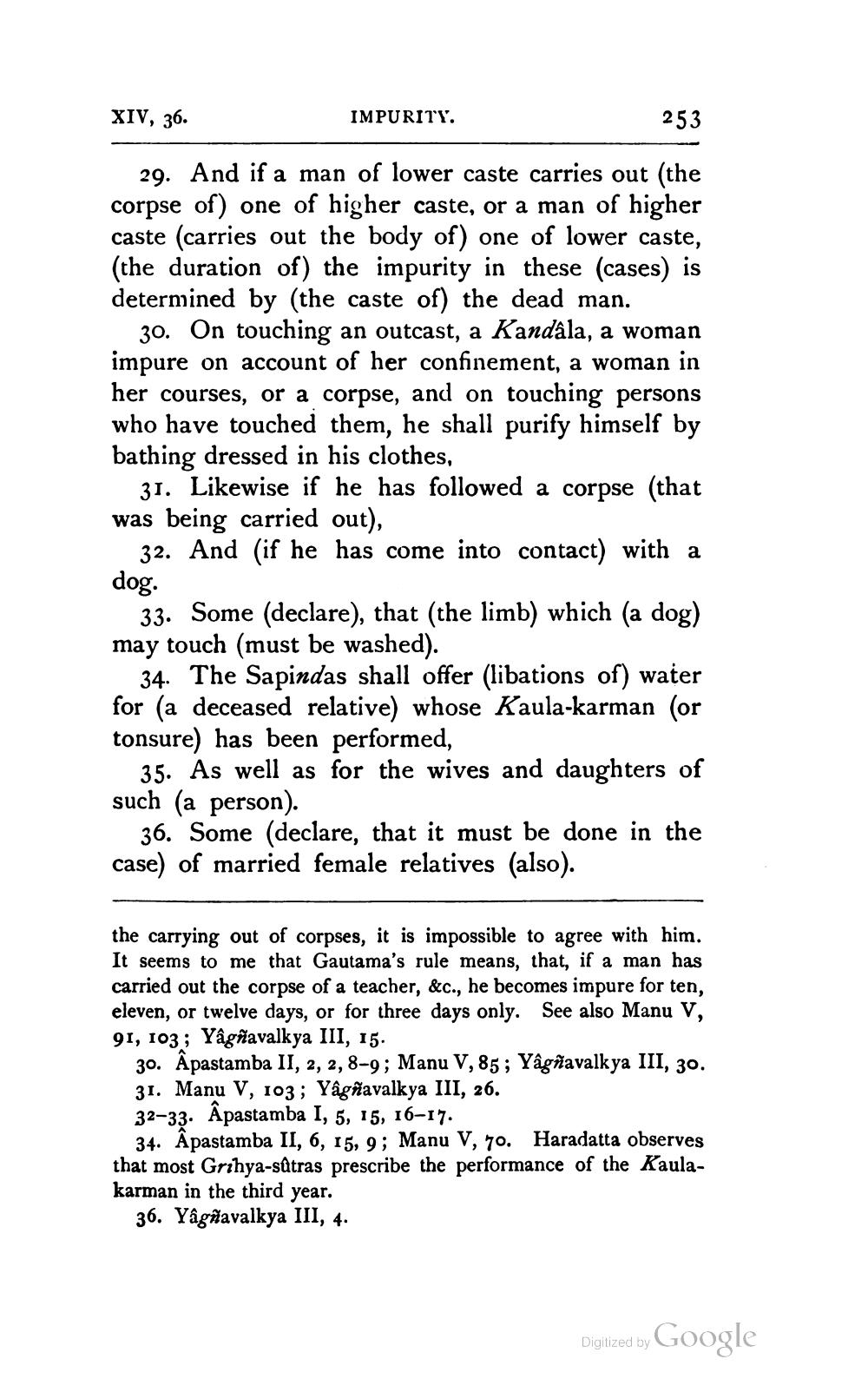________________
XIV, 36.
253
29. And if a man of lower caste carries out (the corpse of) one of higher caste, or a man of higher caste (carries out the body of) one of lower caste, (the duration of) the impurity in these (cases) is determined by (the caste of) the dead man.
30. On touching an outcast, a Kandâla, a woman impure on account of her confinement, a woman in her courses, or a corpse, and on touching persons who have touched them, he shall purify himself by bathing dressed in his clothes,
31. Likewise if he has followed a corpse (that was being carried out),
32. And (if he has come into contact) with a dog.
33. Some (declare), that (the limb) which (a dog) may touch (must be washed).
34. The Sapindas shall offer (libations of) water for (a deceased relative) whose Kaula-karman (or tonsure) has been performed,
35. As well as for the wives and daughters of such (a person).
IMPURITY.
36. Some (declare, that it must be done in the case) of married female relatives (also).
the carrying out of corpses, it is impossible to agree with him. It seems to me that Gautama's rule means, that, if a man has carried out the corpse of a teacher, &c., he becomes impure for ten, eleven, or twelve days, or for three days only. See also Manu V, 91, 103; Yâgnavalkya III, 15.
30. Âpastamba II, 2, 2, 8-9; Manu V, 85; Yâgñavalkya III, 30. 31. Manu V, 103; Yâgñavalkya III, 26.
32-33. Âpastamba I, 5, 15, 16-17.
34. Âpastamba II, 6, 15, 9; Manu V, 70. Haradatta observes that most Grihya-sûtras prescribe the performance of the Kaulakarman in the third year.
36. Yâgйavalkya III, 4.
Google
Digitized by




